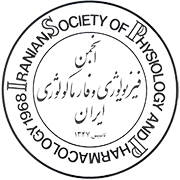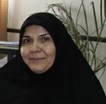I would like to express the warmest of welcomes to the participants, sponsors, and invited guests to attend the 4th International and the 25th Iranian Congress of Physiology and Pharmacology.
For nearly 55 years, the Iranian Society of Physiology and Pharmacology (ISPP) has progressed the promotion of physiology and pharmacology in the country and provided a forum for leadership and exchange of information to stimulate research and collaboration among physiologists and pharmacologists active in all aspects of their profession. In 2021, we hold the 25th congress of the society at Tehran University of Medical Sciences, while we are at a certain point in the history of science.
With the advent of the fourth industrial revolution in 2012, we are faced with the accelerating growth of intelligent technologies that will create dramatic changes in human life. The sciences of physiology and pharmacology have also undergone these changes. Digital drugs, virtual organs, and virtual human bodies are designed and produced. Therefore, physiology and pharmacology education, research on laboratory animals, and clinical trials will change despite the virtual biological system. NBIC technologies and P4 medicine will transform future medicine into systemic medicine. With this vast amount of information and changes, scientific societies will have an important place and responsibility, in raising awareness of these changes, increasing up-to-date knowledge, and empowering societies.
Another event that revolutionized the world was the COVID-19 pandemic, in which universities and academic societies shifted their focus from education, research, and technology to social response to this global crisis. Short and long-term complications of the disease and dozens of other scientific questions in the field of physiological changes affected by COVID-19 need to be investigated. In the field of pharmacology, we should extend our efforts to identify new drugs, provide treatment protocols with high efficacy and least complications, evaluate the effectiveness of existing therapies, study the economic aspects of drugs used in COVID-19 and predict therapeutic interventions using mathematical models and new technologies.
Despite all the challenges posed by SARS-CoV-2, Iranian scientific societies did their best to find ways for faster diagnosis of the infection, designing and manufacturing appropriate vaccines and treatment protocols. These scientific activities and production of research findings enabled us to hold the virtual congress of ISPP at the regular time and in these difficult circumstances. It’s also a great pleasure that this congress is a FAOPS satellite congress, and hopefully, by the experience of this congress and the next two congresses, we get ready to hold the FAOPS Congress in Iran in 2027. In the last two years, the COVID-19 pandemic has taken away numbers of scientific assets from the association, and we will honor the memory of these lost bright stars at the closing ceremony.
Once again, I would like to thank the executive committee, members of ISPP council, and all those who were involved and worked hard during the past two years, to make the 25th ISPP congress more scientific and memorable for the participants.
Masoumeh Jorjani, Pharm D, PhD
President Iranian society of Physiology and Pharmacology





Comments are closed.